
When you’re in love, everything about your partner feels magnetic. You’re wrapped up in the spark and the comfort of being with someone who feels just right. But sometimes, your friends don’t share that same glow. They notice things without bias. The tricky part? They rarely come out and say it. Instead, they drop hints as they do not want to be the reason for confrontation. So, if you’re paying attention, these signs reveal the truth.
Suddenly “Go Quiet” When Your Partner Is Around
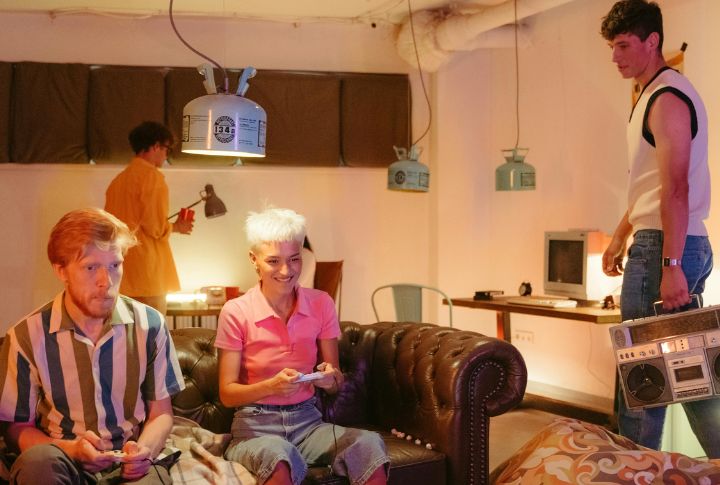
If the room shifts the second your significant other enters, and your friends suddenly stick to safe and generic topics, that’s not a coincidence. Social energy usually expands with a new company. Hence, their quietness denotes discomfort. Your friends wait for the moment they can breathe again once your partner leaves.
Eye-Rolling Or Side Glances

Words can be masked, but body language rarely lies. A quick eye-roll when your partner speaks, or those subtle glances friends exchange behind their backs, say more than they intend to. These micro-reactions are often a leak of irritation or disapproval. When people truly like someone, they lean in with warmth.
Their Compliments Feel Forced
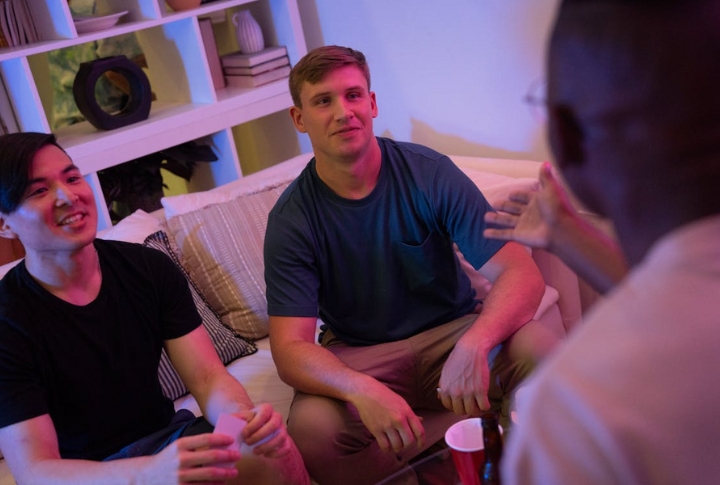
If praise feels more like an obligation than sincerity, notice what they’re choosing to highlight. Safe, surface-level compliments on clothes or appearance dodge what matters more in a relationship. Forced praise is a form of social etiquette that covers up discomfort or disapproval.
Avoid Alone Time With Your Partner

Friendships expand naturally when there’s genuine fondness. Over time, your partner should be an extension of your friend circle. However, if your friends avoid one-on-one time or rely on you as the permanent “buffer,” it signals that they aren’t comfortable with you. Resolve the issues before they become the elephant in the room.
Inside Jokes Stop Flowing

Shared jokes bond friends, making gatherings feel effortless. If the person you’re seeing tries to engage and the group shuts them out or laughs over their head, it shows a deliberate boundary. This exclusion makes social moments uncomfortable and highlights who the group truly centers.
Your Friends Become “Busy” Often

Everyone’s calendar looks suspiciously packed, and schedules become too hectic for dinner when your romantic interest joins, yet miraculously clear for drinks when it’s just you. People generally make time for those who matter to them. So obviously, when cancellations spike or group plans suddenly “don’t work out,” the new addition might be the reason.
Always Change The Subject

When you bring up something sweet your partner did, these friends quickly pivot to completely different topics. They ask about work projects instead of commenting on the romantic gesture you just shared. The shift feels abrupt and leaves you wondering why conversations about your relationship never seem to stick or generate genuine interest from them.
Act Extra Polite

Politeness is excellent, as it maintains a respectful tone. But when your friends switch to stiff formality with your better half, it feels less like kindness and more like a wall. Overuse of “please” and “thank you” replaces natural banter, signaling they’d rather keep things distant than build genuine warmth.
Confide Negative Opinions To You
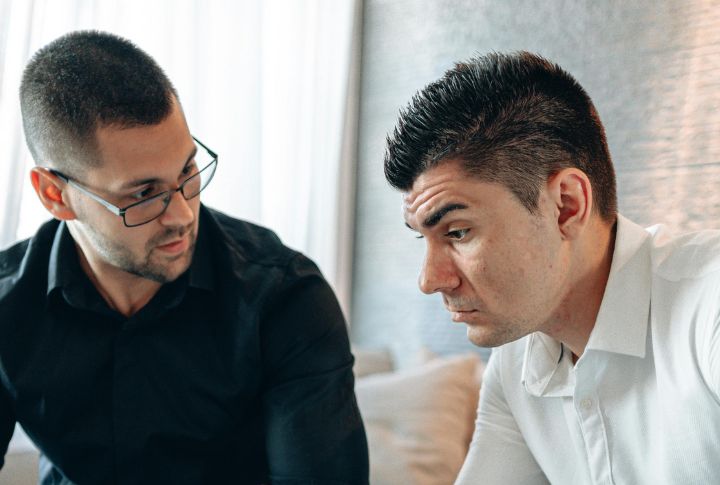
When friends share uneasy thoughts about your companion, it can feel like they’re protecting you. But listen closely—are their words caring or quietly cutting? Repeated comments about them not “fitting in” can sting. If not addressed in the early stages, it leaves you torn between loyalty to your relationship and fear of losing your circle.
Invites Don’t Include Your Partner

If every invite conveniently skips mentioning your partner, it’s a clear sign. Group hangouts suddenly become “just the gang,” and when you suggest bringing them along, your friends conveniently play “singles night out card.” Over time, this selective exclusion becomes a pattern, signaling your friends are drawing lines.
Bring Up Your Ex More Often

It’s one thing to reminisce, but when “Remember when you and [Ex]…” keeps surfacing, it feels intentional. Those comparisons can undermine your current relationship, which suggests your friends preferred the past. It’s all about hinting that they miss the version of you before the person you’re dating now.
Excessive Questioning

Questions about them go beyond casual curiosity. Friends might probe about habits, background, or choices repeatedly, almost as if trying to catch flaws. The constant interrogation creates unease and subtly communicates suspicion, making it clear they aren’t fully trusted or accepted by the circle.
Teasing Turns Sharp

When jokes about your significant other cut too deep, it stops being playful. If your friends mock traits your soulmate values or laugh at their expense, the humor hides criticism. Those “jokes” aren’t harmless, and they leave your companion feeling singled out and uneasy.
Glaze Over During Stories

Notice how certain friends completely zone out when your significant other starts talking at group gatherings. Eyes drift to phones, responses become automatic “mhmm” sounds, and body language screams disinterest. The person you care about becomes invisible in conversations and receives polite but hollow acknowledgments.
Cling To You More At Gatherings
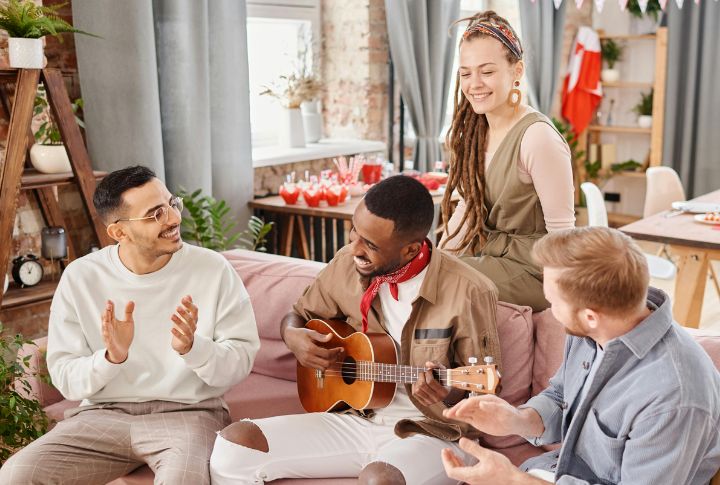
Some friends stick unusually close at gatherings and pull you into conversations or activities away from others. The person you’re dating gets left standing alone while your friends create their own exclusive circle. This possessive behavior makes social events feel like battlegrounds rather than fun occasions.
Watch Your Significant Other Closely

Ever feel like your companion’s every move is under a microscope? That’s confirmation bias at work, which seeks flaws to reinforce a preexisting dislike. Small mistakes are magnified, while positives are overlooked. Such treatment creates an unfair imbalance in how your loved one is perceived.
One Friend Becomes ‘The Spokesperson’

You might observe that the one outspoken friend in the group becomes a spokesperson “on behalf of the group.” This can suggest that the entire group shares the same perspective, and they are using a single mouthpiece to convey the information to you.
Question Your Choices Directly

Comments like “Your significant other doesn’t seem right for you” or “Are you truly happy with them?” can sound like concern, but they often mask projection. Friends may be voicing their own insecurities, and repeated probing usually signals disapproval more than genuine support.
Complain About Group Dynamics Changing
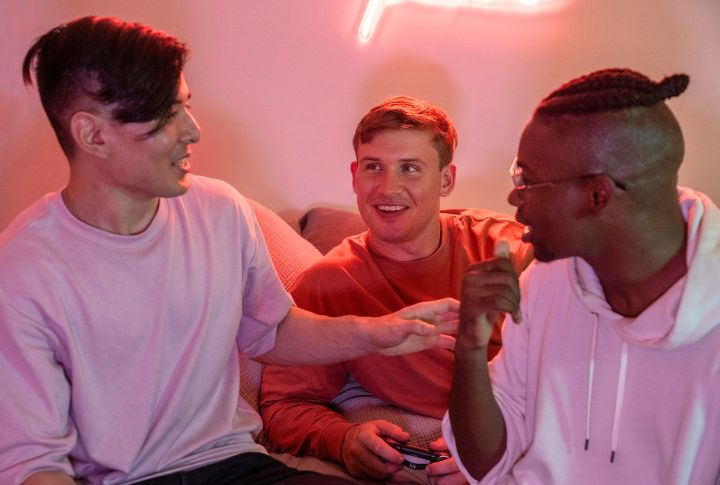
Some friends constantly bring up how much better things used to be before someone new joined the picture. The nostalgia turns bitter when every gathering gets compared to “the good old days” when it was just the original crew. These comments reveal their discomfort with change and resistance to welcoming your significant other into the group.
Never Remember Details About Your Partner

Forgetting a name or career once is normal. Repeatedly overlooking details reflects selective attention. It is a psychological bias where we dismiss what we don’t value. This lack of effort to engage speaks louder than words and suggests that they’re not genuinely interested in getting to know them.

